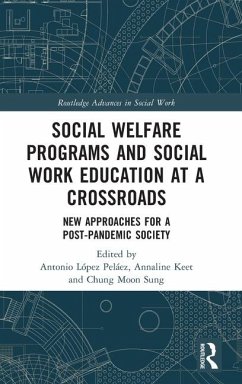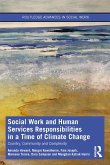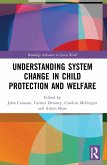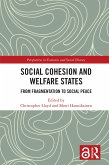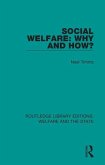This book explores a key phenomenon that has been accelerated by the COVID-19 crisis, namely, the crossroads at which social welfare professionals find themselves. This is a crossroads where, on the one hand, there is an accelerated digitalization process and a reorganization of social programs, while on the other hand, we are confronted by the basic challenge of designing social policies and their methods of evaluation, that is, the generation of robust data that will allow better evaluation of social projects and programs.
Rigorously analyzing the crossroads at which social welfare programs find themselves and the new demands for the education of professionals involved in social welfare programs, several key issues can be discerned;
- the theoretical debate surrounding the changes brought about by the COVID-19 pandemic and the process of redefining globalization in which we are immersed.
- the challenges to be met by welfare programs, and the good practices that are being implemented.
- the key issue of how to generate more robust data in the field of social services and social protection.
- how to increase the competencies of professionals through education in schools of social work.
Providing 15 newly written chapters drawn from both the global north and the global south, it offers a set of recommendations to address the challenges of inequality and social inclusion in the coming years.
It will be of interest to all academics, students and practitioners working in the fields of social work, social welfare and social development.
Rigorously analyzing the crossroads at which social welfare programs find themselves and the new demands for the education of professionals involved in social welfare programs, several key issues can be discerned;
- the theoretical debate surrounding the changes brought about by the COVID-19 pandemic and the process of redefining globalization in which we are immersed.
- the challenges to be met by welfare programs, and the good practices that are being implemented.
- the key issue of how to generate more robust data in the field of social services and social protection.
- how to increase the competencies of professionals through education in schools of social work.
Providing 15 newly written chapters drawn from both the global north and the global south, it offers a set of recommendations to address the challenges of inequality and social inclusion in the coming years.
It will be of interest to all academics, students and practitioners working in the fields of social work, social welfare and social development.
"The 3-year period of COVID-19 pandemic has made a significant impact on the field of social welfare policy as well as social work practice and education by accelerating the speed of digital transformation. The digitization practice, as advocated in the name of 'e-welfare' in the Nordic countries and 'gerontechnology' in US and UK, had advanced to a higher level in terms of not only speed and quality but also scope and quantity. This book, a succinct summary of the 2022 World Social Welfare Conference in Seoul, covers important issues of improving efficiency and broadening citizen participation in the field of social welfare for a post pandemic society".
Sang Mok Suh
President of the International Council on Social Welfare (ICSW)
Former Minister of Health & Welfare, Korean Government
"This volume edited by Antonio López Peláez, Annaline Keet, and Chung Moon Sung is a comprehensive collection of essays that provides invaluable insights into the evolving landscape of social work theory, practice, and education post-COVID-19. Addressing critical themes like urban conflicts, digital human rights, and shared decision-making, this book offers innovative perspectives to navigate societal challenges. The diverse contributions from esteemed scholars worldwide, ensure a rich and multifaceted exploration of pressing issues. This publication is an indispensable resource for academics, practitioners, and policymakers seeking to redefine and enhance social welfare programs and education in our rapidly changing world."
Annamaria Campanini
President, International Association of Schools of Social Work (IASSW)
Retired Prof. Phd. in Social Work
Università Milano Bicocca
"This is the exact book I would like social policy practitioners, educators and students to read and challenge themselves to reflect on a practice setting transformed by pandemics, artificial Intelligence (AI) and geopolitical tensions that have strongly bred social inequalities. COVID 19 exposed us to the naked reality of deep rooted inequalities exacerbated by geopolitical tensions which has left the whole world heavily polarized. The book is remarkable and should be a must-read for all of us as it comes at the time when the social work profession is positioning itself to promoting and supporting efforts in co-designing and co-creating sustainable interventions".
Joachim Cuthbert Mumba
President - International Federation of Social Worker
Sang Mok Suh
President of the International Council on Social Welfare (ICSW)
Former Minister of Health & Welfare, Korean Government
"This volume edited by Antonio López Peláez, Annaline Keet, and Chung Moon Sung is a comprehensive collection of essays that provides invaluable insights into the evolving landscape of social work theory, practice, and education post-COVID-19. Addressing critical themes like urban conflicts, digital human rights, and shared decision-making, this book offers innovative perspectives to navigate societal challenges. The diverse contributions from esteemed scholars worldwide, ensure a rich and multifaceted exploration of pressing issues. This publication is an indispensable resource for academics, practitioners, and policymakers seeking to redefine and enhance social welfare programs and education in our rapidly changing world."
Annamaria Campanini
President, International Association of Schools of Social Work (IASSW)
Retired Prof. Phd. in Social Work
Università Milano Bicocca
"This is the exact book I would like social policy practitioners, educators and students to read and challenge themselves to reflect on a practice setting transformed by pandemics, artificial Intelligence (AI) and geopolitical tensions that have strongly bred social inequalities. COVID 19 exposed us to the naked reality of deep rooted inequalities exacerbated by geopolitical tensions which has left the whole world heavily polarized. The book is remarkable and should be a must-read for all of us as it comes at the time when the social work profession is positioning itself to promoting and supporting efforts in co-designing and co-creating sustainable interventions".
Joachim Cuthbert Mumba
President - International Federation of Social Worker

